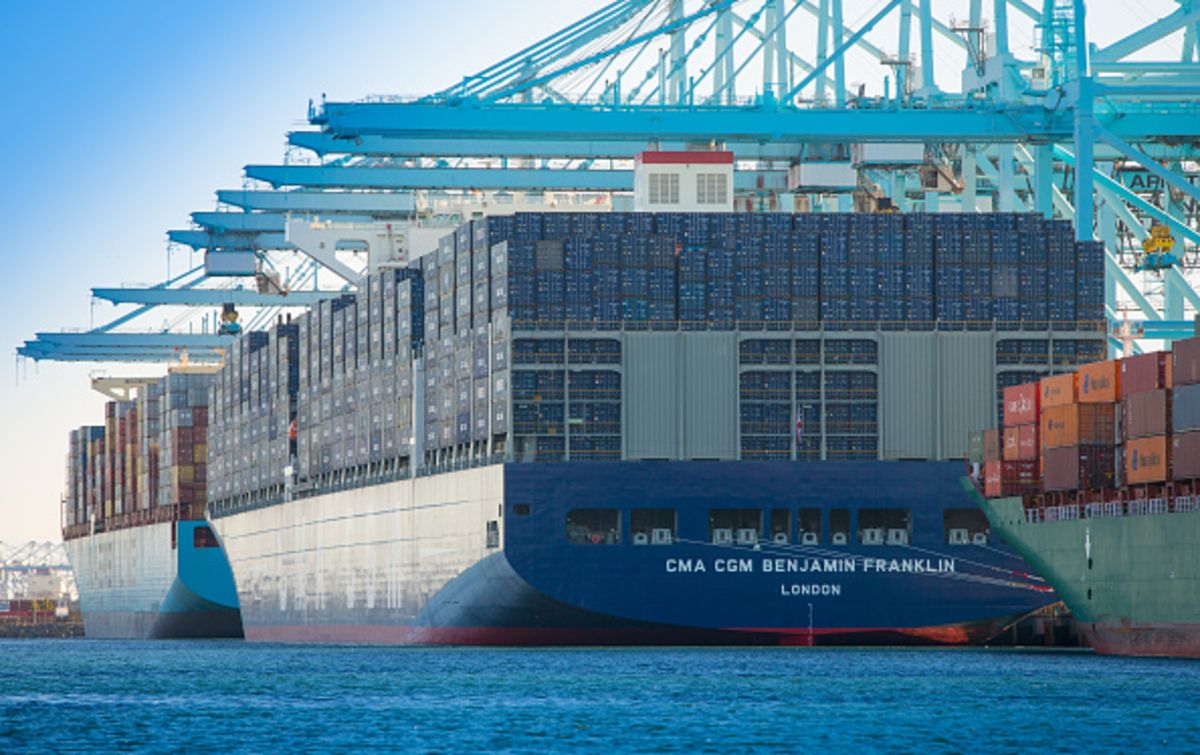- EWATA: Nigeria Losing Out on Global Cargo Transportation
The fact that Nigeria is not a member of the Europe West African Trade Agreement is costing her huge revenue in global shipping and cargo transportation, it has been learnt.
EWATA is an economic partnership agreement initiated by the European Union to include countries in the Economic Community of West African States and the West African Economic and Monetary Union.
The agreement takes into account the fact that West African trade is expanding; covering notably transportation and logistics, travel and business services; and the region is said to be the most important investment destination for the EU in Africa.
The agreement which also forms part of the Economic Partnership Agreement with Europe aims to establish a free trade area between 16 West African countries and the EU.
It promises to help West Africa to integrate better into the global trading system as well as support investment and economic growth in the region; increase West African exports to the EU; stimulate investment and contribute to developing productive capacity, with a positive effect on employment.
Nigeria had halted its planned entering into trade agreement with Europe for fear that its market might become a dumping ground for European goods produced under more efficient, technologically-driven, tax and credit-friendly environment.
Nigeria, also seen as the largest economy in Africa, has attracted a lot of interest from Europe and Asia seeking to trade with it.
But operators in Nigeria, citing unfavourable business environment and unfriendly tax and credit policies, have said that products from the advanced nations will be far cheaper and eventually crowd out the those produced in Nigeria.
Sharing the views of operators, President Muhammadu Buhari who also refused to sign the African Continental Free Trade Area Agreement declared, “We will not agree to anything that will undermine local manufacturers and entrepreneurs, or that may lead to Nigeria becoming a dumping ground for finished goods.”
The former President of Tanzania, Mr Benjamin Mkapa, who was a guest speaker at the 2017 Manufacturers Association of Nigeria’s Annual General Meeting, advised Nigerians against entering into trade agreements with Europe.
Mkapa had described EPA as an overture that meant more harm to Africa than good.
The country has however paid for refusing to sign the agreement. Apart from standing to lose out of trillions of dollars worth of trade benefits, the country is also losing out in the maritime trade and transportation sector.
According to the President, Shippers Association of Lagos State, Jonathan Nicol, Nigerian vessels cannot be permitted to carry cargo from Europe because Nigeria is not a member of the trade association.
“This is the cartel that they have formed and until we sign up, we cannot function in the maritime transport terrain,” he explained, saying that this was why Nigeria did not have sea-going vessels.
“In the 80s, (the administration of former President Olusegun) Obasanjo bought about 20 vessels meant for the international waters but over time, infrastructural decay set in and those vessels were no longer useful.
“Even if Nigeria were to operate a vessel, it would only convey produce to Europe and return without any cargo, whereas the foreign shipping lines that come to Nigeria bring cargoes and take cargoes back,” Nicol said.
He said without that cargo, the vessel would be operating at a loss.
The Director-General, Lagos Chamber of Commerce and Industry, Mr. Muda Yusuf, however stressed the need to build capacity of local operators to get them to compete in the maritime industry.
He noted that already Nigeria was trading in oil but not many indigenous operators were in that sector.
He said there ought to be policies that should deliberately encourage patronage of local operators.
“There are some countries you go to even in the West African sub-region, if you are a Nigerian, you cannot clear any cargo there.
“But here, everybody is clearing cargo, to the extent that many of our indigenous people are crowded out. It is about putting our own people first; let’s position them, if they don’t have capacity, let us support them to have capacity.”


 Billionaire Watch3 weeks ago
Billionaire Watch3 weeks ago
 Startups4 weeks ago
Startups4 weeks ago
 News4 weeks ago
News4 weeks ago
 News4 weeks ago
News4 weeks ago
 Bitcoin4 weeks ago
Bitcoin4 weeks ago
 Naira4 weeks ago
Naira4 weeks ago
 Forex3 weeks ago
Forex3 weeks ago
 Treasury Bills4 weeks ago
Treasury Bills4 weeks ago
























